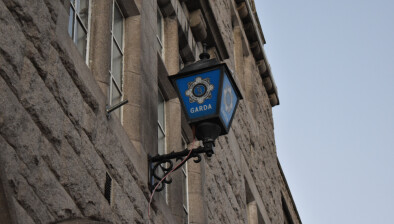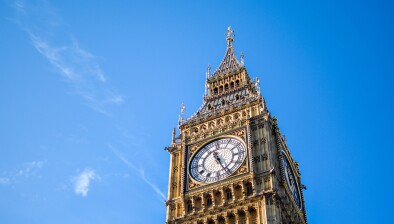Supreme Court: Constitutionality of law on access to seized digital devices upheld

The Supreme Court has upheld the constitutionality of provisions of the Criminal Justice (Theft and Fraud Offences) Act 2001 which prescribe the offence of failing to comply with a request to provide passwords or biometric data to seized digital devices without lawful excuse.

About this case:
- Citation:[2025] IESC 47
- Judgment:
- Court:Supreme Court
- Judge:Mr Justice Peter Charleton
Delivering judgment for the Supreme Court, Mr Justice Peter Charleton reasoned: “What exists already does not infringe the right against self-incrimination. What is compelled from a suspect, either in the form of a confession or an item of evidence which proves ownership or use, engages that right. Where there are serious reasons based on rational suspicion which convince a judge that an intrusion into a private space, physical or digital, is necessary and proportionate, there must be means to engage appropriate police powers in furtherance of an investigation into serious crime.”
Background
Against the backdrop of an investigation by the Garda Economic Crime Bureau and following the conviction of an individual in December 2023 for major theft from various financial institutions and banks from 2006 to 2007, on 9 January 2024, two smartphones and a computer belonging to the appellant were seized at his residence on foot of a District Court search warrant.
The warrant was granted under s.48(2) of the Criminal Justice (Theft and Fraud Offences) Act 2001, the District Court having been satisfied, in accordance with DPP v Quirke [2024] 2 IR 1, that reasonable grounds were established by gardaí to search not just in the appellant’s physical space but also in the digital space.
During the course of the search and thereafter, the appellant was asked by gardaí for the passwords to access the devices pursuant to s.48(5)(b)(i) of the 2001 Act.
Having refused that request, the appellant was arrested and was subsequently charged with three offences under s.49(1)(c) of the 2001 Act, relating to his failure to comply, without lawful excuse, with the requirement to provide the passwords for the three devices.
The appellant brought judicial review proceedings seeking to prohibit his prosecution and seeking declaratory relief condemning the relevant statutory provisions on the basis that same amounted to a disproportionate interference with his constitutional rights to privilege against self-incrimination and to freedom of expression, and on the basis of incompatibility with the guarantee under Article 6 of the European Convention on Human Rights (ECHR) to a fair trial.
The application came before Mr Justice Conleth Bradley, the High Court finding that the privilege against self-incrimination was not engaged where all three devices existed independently of the will of the appellant.
The Supreme Court permitted a leapfrog appeal on the issues of whether compelling a person to provide a password or digital key engages the right against self-incrimination where no direct verbal admission is made, and whether providing such access constitutes an admission in law, those being questions which the Supreme Court had yet to clarify.
The Supreme Court
Mr Justice Charleton considered that subject to the “key safeguard” that compelled evidence cannot be used against the suspect, s.49 of the 2001 Act does not offend the Constitution. The judge was also satisfied that the provision requiring a suspect to provide a passcode to a computer seized under a judicially-mandated warrant did not offend Article 6 ECHR.
Highlighting that the search for and seizure of a computer for investigation is required to be both judicially-mandated and based upon reasonable grounds, the court was satisfied that it was established in Quirke that where it is proposed to operate the computer so as to search within the digital space, reasonable justification must be set before the judge issuing the search warrant to establish the necessity and proportionality of that step.
Mr Justice Charleton noted that the Supreme Court’s judgment differed from the analysis of the High Court, finding that s.49 engages the right to silence where stating a passcode or biometrically operating a computer could be an item of evidence which establishes possession and use by the suspect, and is therefore potentially incriminating.
The court observed that the legislation is a “targeted response to the need to search the digital sphere”, noting that while any password revealed or biometric operation performed under the compulsion cannot be used against the suspect, the contents of the device, existing already and outside the “sphere of any compulsion” can be used against the suspect.
The court observed that under the legislation, no further right was being infringed beyond what was necessary to fulfil the rational imperatives in the detection of serious crime, and that the accused is offered a choice “of cooperation analogous to opening the door to a room or cupboard or safe in a physical search, or of defying the judicially-mandated warrant. Where his or her choice is that of refusal, there may be a prosecution, but for the much lesser offence; that charged here. The likely penalties, as noted, are markedly less than the kind of offences for which search warrants may be issued.”
Noting that as yet, there is no prosecution on the financial irregularities leading the District Court to issue the search warrant on foot of which the devices were seized, Mr Justice Charleton remarked that the appellant remained a person presumed to be innocent both on the charges faced in respect of refusing to operate the devices and on any offences with which he might in the future be charged in relation to the underlying financial investigation.
Conclusion
Accordingly, having concluded that there was no basis to prohibit the appellant’s prosecution where the legislation was found to be compatible with the Constitution and the ECHR, the Supreme Court dismissed the appeal.
Poptoshev v DPP & Ors [2025] IESC 47









